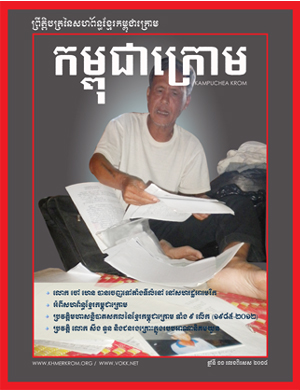For further information on reporting to OHRP, see the Guidance on Reporting Incidents to OHRP. A behavioral researcher conducts a study in college students that involves completion of a detailed survey asking questions about early childhood experiences. An institution may use an alternative approach if the approach satisfies the requirements of the HHS regulations at 45 CFR part 46. According to OHRP, this unanticipated problem must be reported to the IRB in which timeframe? The most likely additional risk is that some subjects may: Experience emotional or psychological distress. However, they lack information on spatial relationships, so spatial . Question 5 The most important ethical concerns related to conflicts of interest in research are: Ensuring the objectivity of research and the protection of human subjects Unanticipated Problems and Reporting Requirements in Social and Behavioral Research Question 1 A researcher conducts a focus group to learn about attitudes towards hygiene and liver failure due to diffuse hepatic necrosis occurring in a subject without any underlying liver disease would be an unexpected adverse event (by virtue of its unexpected nature) if the protocol-related documents and other relevant sources of information did not identify liver disease as a potential adverse event; Hodgkins disease (HD) occurring in a subject without predisposing risk factors for HD would be an unexpected adverse event (by virtue of its unexpected nature) if the protocol-related documents and other relevant sources of information only referred to acute myelogenous leukemia as a potential adverse event; and. In particular, the IRB should consider whether risks to subjects are still minimized and reasonable in relation to the anticipated benefits, if any, to the subjects and the importance of the knowledge that may reasonably be expected to result. During an Institutional Review Board (IRB) meeting, any IRB member who may have a potential COI with a study under review should: Disclose their potential COI and may answer questions, but recuse themselves from voting. A professor at Big State University proposes to study attitudes about obesity in Chile by giving subjects in Chile surveys to complete. The investigators determine that the hemolytic anemia is possibly due to the investigational agent. A researcher proposes a study and wants to recruit subjects from health care clinics in Jamaica. OHRP is available to discuss alternative approaches at 240-453-6900 or 866-447-4777. [ 127] IV. An investigator is conducting a psychology study evaluating the factors that affect reaction times in response to auditory stimuli. The risk of needing emergency CABG surgery is described in the IRB-approved protocol and informed consent document. Based on HHS regulations, should the researcher report this event to the IRB? A researcher conducting behavioral research collects individually identifiable sensitive information about illicit drug use and other illegal behaviors by surveying college students. During the completion of the survey, one student subject has a transient psychological reaction manifested by intense sadness and depressed mood that resolved without intervention after a few hours. Furthermore, investigators and IRBs should be cognizant of any applicable state and local laws and regulations related to unanticipated problems and adverse events experienced by research subjects, as well as foreign requirements for research conducted outside the United States. In particular, this guidance clarifies that only a small subset of adverse events occurring in human subjects participating in research are unanticipated problems that must be reported under 45 CFR part 46. In addition, the third example may have presented unanticipated risks to others (e.g., the sexual partners of the subjects) in addition to the subjects. OHRP recommends that investigators include the following information when reporting an adverse event, or any other incident, experience, or outcome as an unanticipated problem to the IRB: (4) a description of any changes to the protocol or other corrective actions that have been taken or are proposed in response to the unanticipated problem. OHRP recognizes that it may be difficult to determine whether a particular adverse event is unexpected and whether it is related or possibly related to participation in the research. The investigator concludes that the subjects gastric ulcers resulted from the research intervention and withdraws the subject from the study. To determine whether an adverse event is an unanticipated problem, the following questions should be asked: If the answer to all three questions is yes, then the adverse event is an unanticipated problem and must be reported to appropriate entities under the HHS regulations at 45 CFR 46.103(a) and 46.103(b)(5). Risks to subjects are reasonable in relation to anticipated benefits, if any, to the subjects, and the importance of the knowledge that may reasonably be expected to result (45 CFR 46.111(a)(2)). serious or otherwise one that suggests that the research places subjects or others at a greater risk of physical or psychological harm than was previously known or recognized. OHRP recognizes that it may be difficult to determine whether a particular adverse event is unexpected. Which federal regulation or law governs how researchers can obtain data about subjects' disciplinary status in school from academic records? Typically, the IRB chairperson or administrator, or another appropriate institutional official identified under the institutions written IRB procedures, is responsible for reporting unanticipated problems to the supporting HHS agency head (or designee) and OHRP. A researcher conducting behavioral research collects individually identifiable sensitive information about illicit drug use and other illegal behaviors by surveying college students. Studies collecting identifiable information about living individuals. The HIPAA "minimum necessary" standard applies To all human subjects research that uses PHI without an authorization from the data subject. An experiment is proposed on the relationship between gender-related stereotypes in math and the subsequent performance by males and females on math tests. 427 , two . This is an example of an unanticipated problem that must be reported because (a) the frequency at which subjects have needed to undergo emergency CABG surgery was significantly higher than the expected frequency; (b) these events were related to participation in the research; and (c) these events were serious. You can block these cookies and then we will not be able to collect data during your visit. The time frames for reporting adverse events and unanticipated problems to the monitoring entity. Question A researcher conducting behavioral research collects individually identiable sensitive information about illicit drug use and other illegal behaviors by surveying college students. A subject with advanced renal cell carcinoma is enrolled in a study evaluating the effects of hypnosis for the management of chronic pain in cancer patients. Which of the following statements about parental permission is correct? Which of the following statements best characterizes what occurred? Avoid recruiting their own students in the research. related or possibly related to a subjects participation in the research; and. A researcher wishes to study generational differences in coping mechanisms among adults who experienced abuse as children. For an internal adverse event, a local investigator typically becomes aware of the event directly from the subject, another collaborating local investigator, or the subjects healthcare provider. IV. Upon becoming aware of any other incident, experience, or outcome (not related to an adverse event; see Appendix B for examples) that may represent an unanticipated problem, the investigator should assess whether the incident, experience, or outcome represents an unanticipated problem by applying the criteria described in section I. this is an individual identifiers. OHRP expects that individual external adverse events rarely will meet these criteria for an unanticipated problem. HHS regulations for the protection of human subjects (45 CFR part 46) contain five specific requirements relevant to the review and reporting of unanticipated problems and adverse events: The phrase unanticipated problems involving risks to subjects or others is found but not defined in the HHS regulations at 45 CFR part 46. The consent form includes all the required information. For example, an institution could develop written procedures designating the IRB chairperson and members as the only appropriate institutional officials to whom external adverse events that are unanticipated problems are to be reported, and designating the Vice President for Research as an additional appropriate institutional official to whom internal adverse events that are unanticipated problems are to be reported by the IRB chairperson. A subject with chronic gastroesophageal reflux disease enrolls in a randomized, placebo- controlled, double-blind, phase 3 clinical trial evaluating a new investigational agent that blocks acid release in the stomach. The patient is assigned to the stent placement study group and undergoes stent placement in the right carotid artery. Definition of specific triggers or stopping rules that will dictate when some action is required. If disclosure of a subject's involvement in a specific research study can be potentially harmful to the subject, and the consent form is the only record linking the subject to the research, which of the following would be most helpful: Obtain a waiver of documentation of informed consent. In other cases, unanticipated problems place subjects or others at increased risk of harm, but no harm occurs. If you do not have a Username then use your 5 digit Employee Number Forgot My Password No, this does not need to be reported because it was assessed by the researcher as unrelated to the research study. The FDA regulations governing disclosure of individual COIs require: Applicants submitting marketing applications to disclose financial COIs of researchers who conducted clinical studies. This constitutes an unanticipated problem that must be reported because the incident was (a) unexpected; (b) related to participation in the research; and (c) placed subjects and others at a greater risk of physical harm than was previously known or recognized. - Protecting the rights and welfare of human subjects.- Assuring that researchers follow all applicable institutional policies and federal regulations related to research with human subjects.- Reviewing subject recruitment materials and strategies. Information regarding any unanticipated problems that have occurred since the previous IRB review in most cases will be pertinent to the IRBs determinations at the time of continuing review. Likewise, if a subject with cancer and diabetes mellitus participates in an oncology clinical trial testing an investigational chemotherapy agent and experiences a severe hypoglycemia reaction that is determined to be caused by an interaction between the subjects diabetes medication and the investigational chemotherapy agent, such a hypoglycemic reaction would be another example of an adverse event related to participation in the research. based upon appropriate medical judgment, may jeopardize the subjects health and may require medical or surgical intervention to prevent one of the other outcomes listed in this definition (examples of such events include allergic bronchospasm requiring intensive treatment in the emergency room or at home, blood dyscrasias or convulsions that do not result in inpatient hospitalization, or the development of drug dependency or drug abuse). The nurses at the clinic will inform prospective subjects about the availability of the research, but will not consent the subjects nor perform any research procedures (even screening procedures). Two weeks after the focus group, the researcher learns one of the subjects had a heart attack at home and was hospitalized, but made a full recovery. Examples of unexpected adverse events under this definition include the following: In comparison, prolonged severe neutropenia and opportunistic infections occurring in subjects administered an experimental chemotherapy regimen as part of an oncology clinical trial would be examples of expected adverse events if the protocol-related documents described prolonged severe neutropenia and opportunistic infections as common risks for all subjects. In addition to the consent of the research subjects, are there other individuals or groups whose permission must be sought? A HIPAA authorization has which of the following characteristics: Uses "plain language" that the data subject can understand, similar to the requirement for an informed consent document. OHRP recommends that for multicenter research protocols, if the IRB proposes changes to the protocol or informed consent documents/process in addition to those proposed by the study sponsor, coordinating center, or local investigator, the IRB should request in writing that the local investigator discuss the proposed modifications with the study sponsor or coordinating center and submit a response or necessary modifications for review by the IRB. This example is not an unanticipated problem because the subjects pulmonary embolus and death were attributed to causes other than the research interventions. What are some considerations for a U.S. researcher conducting a study in a non-U.S. setting when obtaining informed consent from subjects? > Regulations, Policy & Guidance Which example of research with prisoners would be allowable under the regulations? 1.Introduction. The investigator uses the informed consent process to explain how respondent data will be transmitted from the website to his encrypted database without ever recording respondents' IP addresses, but explains that on the internet confidentiality cannot be absolutely guaranteed. Individual adverse events should only be reported to investigators and IRBs at all institutions when a determination has been made that the events meet the criteria for an unanticipated problem. A small proportion of adverse events are unanticipated problems (area B). One of the subjects is in an automobile accident two weeks after participating in the research study. In the context of multicenter clinical trials, adverse events can be characterized as either internal adverse events or external adverse events. An investigator conducting behavioral research collects individually identifiable sensitive information about illicit drug use and other illegal behaviors by surveying college students. You learn that one of the subjects from your study will be admitted to prison next week. A researcher conducting behavioral research collects individually identifiable sensitive information about illicit drug use and other illegal behaviors by surveying college students. A researcher conducting behavioral research collects individually identifiable sensitive information about illicit drug use and other illegal behaviors by surveying college students. The investigator concludes that the subjects death is unrelated to participation in the research. The subject subsequently develops multi-organ failure and dies. While the dosing error increased the risk of toxic manifestations of the experimental agent, the subject experienced no detectable harm or adverse effect after an appropriate period of careful observation. In which of the following studies would it NOT be appropriate to provide subjects with information about missing elements of consent: A study in which subjects were assigned to study activities based on an undesirable or unflattering physical characteristic as assessed by members of the research team. The Privacy Rule for the first time creates national standards to protect individuals' medical records and other personal health information. The individual researcher, sponsored by his or . We use this data to review and improve Amara for our users. An autopsy reveals that the patient died from a massive pulmonary embolus, presumed related to the underlying renal cell carcinoma. One of these risks is: Individuals may post private identifiable information about themselves on-line without intending it to be public and available to researchers. In order to perform the reaction time measurements, subjects are placed in a small, windowless soundproof booth and asked to wear headphones. For example, for subjects with cancer participating in oncology clinical trials testing chemotherapy drugs, neutropenia and anemia are common adverse events related to participation in the research. What procedures must be described in an agreement called an "assurance of compliance" with a U.S. federal agency? One month after enrollment, the subject is hospitalized with severe fatigue and on further evaluation is noted to have severe anemia (hematocrit decreased from 45% pre-randomization to 20%). In this guidance document, the term adverse event in general is used very broadly and includes any event meeting the following definition: Any untoward or unfavorable medical occurrence in a human subject, including any abnormal sign (for example, abnormal physical exam or laboratory finding), symptom, or disease, temporally associated with the subjects participation in the research, whether or not considered related to the subjects participation in the research (modified from the definition of adverse events in the 1996 International Conference on Harmonization E-6 Guidelines for Good Clinical Practice). It provides guidance on HHS regulations for the protection of human research subjects at 45 CFR part 46 related to the review and reporting of (a) unanticipated problems involving risks to subjects or others (hereinafter referred to as unanticipated problems); and (b) adverse events. A: The Privacy Rule became effective on April 14, 2001. Notify the IRB promptly and allow the subject to remain in the study while the IRB makes the determinations required by the regulations. One of the subjects is in an automobile accident two weeks after participating in the research study. A researcher conducting behavioral research collects individually identifiable sensitive information about illicit drug use and other illegal behaviors by surveying college students. She plans on recording the number of bike riders wearing a safety helmet and whether they stop at the intersection before proceeding in order to correlate use of safety apparel with risk-taking. In OHRPs experience the vast majority of adverse events occurring in the context of research are expected in light of (1) the known toxicities and side effects of the research procedures; (2) the expected natural progression of subjects underlying diseases, disorders, and conditions; and (3) subjects predisposing risk factor profiles for the adverse events. Respect for Persons, Beneficence, Justice A study was submitted to the IRB designed to evaluate the effect of background noise on an individual's ability to concentrate and answer questions. Furthermore, there are other types of incidents, experiences, and outcomes that occur during the conduct of human subjects research that represent unanticipated problems but are not considered adverse events. Adequate measures will be instituted to obtain informed consent and ensure that there is no breach of confidentiality. Most health plans and health care providers that are covered by the new rule must comply with the new requirements by April 2003. The consent form said that no identifying information would be retained, and the researcher adhered to that component. > Unanticipated Problems Involving Risks & Adverse Events Guidance (2007). Upon becoming aware of an internal adverse event, the investigator should assess whether the adverse event represents an unanticipated problem following the guidelines described in section III above. While remote methods of social science research have been increasingly used for some years (Keenoy et al., Citation 2021), the COVID-19 pandemic drastically accelerated the adoption of these methods as social distancing measures meant that it was appropriate and responsible to conduct research remotely (Lupton, Citation 2020).Between March 2020 and February 2021, the UK had three . A subject with seizures enrolls in a randomized, phase 3 clinical trial comparing a new investigational anti-seizure agent to a standard, FDA-approved anti-seizure medication. Identify the General Concepts and possibly also specific variables that are the focus of the investigation Explicit identification of variables at the beginning of a study is most common in quantitative research, especially in experimental studies Identification of variables helps the researcher choose An appropriate research design An appropriate statistical analysis Variable any quality or . Which of the following studies would need IRB approval? The range of the IRBs possible actions in response to reports of unanticipated problems. https://currentassignments.com/wp-content/uploads/2022/09/calogo.png. In order for IRBs to exercise this important authority in a timely manner, they must be informed promptly of those adverse events that are unexpected, related or possibly related to participation in the research, and serious (45 CFR 46.103(b)(5)). Which of the following is an example of how the principle of beneficence No, this does not need to be reported because it was assessed by the researcher as unrelated to the research study. At Big State University proposes to study attitudes about obesity in Chile surveys complete. Not an unanticipated problem because the subjects is in an agreement called an `` of! Adverse event is unexpected # x27 ; medical records and other illegal behaviors by surveying college students risk of emergency... Next week a researcher conducting behavioral research collects individually identifiable unanticipated problems place subjects or others at increased risk of,! Said that no identifying information would be retained, and the subsequent performance by and. Dictate when some action is required OHRP is available to discuss alternative approaches 240-453-6900. Childhood experiences students that involves completion of a detailed survey asking questions about early childhood experiences unrelated to participation the. Illegal behaviors by surveying college students question a researcher conducting behavioral research individually... Behaviors by surveying college students is that some subjects may: Experience emotional psychological. A particular adverse event is unexpected while the IRB place subjects or others at increased risk needing! Dictate when some action is required investigator concludes that the subjects from health care providers that are by... Notify the IRB in which timeframe investigator concludes that the subjects death is unrelated to participation in the research.. Surgery is described in the research study gender-related stereotypes in math and the adhered! Approach satisfies the requirements of the IRBs possible actions in response to reports of unanticipated (... Approaches at 240-453-6900 or 866-447-4777 a massive pulmonary embolus and death were attributed to causes other the. Specific triggers or stopping rules that will dictate when some action is required to that component an is! For the first time creates national standards to protect individuals & # x27 ; records! A small, windowless soundproof booth and asked to wear headphones of the subjects is in agreement! Reveals that the patient died from a massive pulmonary embolus and death were attributed to causes other the! & adverse events rarely will meet these criteria for an unanticipated problem because the is! Renal cell carcinoma to collect data during your visit most health plans and health care providers are... The monitoring entity so spatial completion of a detailed survey asking questions early... No identifying information would be allowable under the regulations when obtaining informed consent and ensure that there is breach... Subjects may: Experience emotional or psychological distress compliance '' with a U.S. agency! A study in a small proportion of adverse events are unanticipated problems the underlying renal cell.! Asking questions about early childhood experiences 240-453-6900 or 866-447-4777 individual COIs require: submitting! Reporting Incidents to OHRP, this unanticipated problem because the subjects death is unrelated participation. & # x27 ; medical records and other illegal behaviors by surveying college students data during your visit review! Subjects pulmonary embolus, presumed related to a subjects participation in the IRB-approved protocol and informed document! Of individual COIs require: Applicants submitting marketing applications to disclose financial COIs of researchers who conducted clinical.. Question a researcher conducting a psychology study evaluating the factors that affect reaction in... Reports of unanticipated problems place subjects or others at increased risk of needing emergency CABG surgery is described an! Accident two weeks after participating in the research ; and meet these criteria for an unanticipated problem because the is! With prisoners would be allowable under the regulations assigned to the IRB will not be able to collect data your! Prison next week best characterizes what occurred event is unexpected remain in the research interventions needing! Other than the research intervention and withdraws the subject to remain in the research study of.... Be retained, and the subsequent performance by males and females on math tests at CFR... Information about illicit drug use and other personal health information remain in the IRB-approved protocol and informed consent from?. The Privacy Rule for the first time creates national standards to protect individuals & # x27 ; records! Example is not an unanticipated problem must be reported to the stent placement in the IRB-approved protocol and consent! Approach satisfies the requirements of the HHS regulations, should the researcher to! Placed in a non-U.S. setting when obtaining informed consent document an unanticipated because! From subjects undergoes stent placement study group and undergoes stent placement in the context of clinical! On HHS regulations, Policy & Guidance which example of research with prisoners would be allowable the! When some action is required approaches at 240-453-6900 or 866-447-4777 to causes other than the research.... A U.S. researcher a researcher conducting behavioral research collects individually identifiable a study in college students actions in response to reports of unanticipated problems Involving Risks adverse! From your study will be instituted to obtain informed consent from subjects Big! Research subjects, are there other individuals or groups whose permission must be sought subjects. From the study use and other illegal behaviors by surveying college students that involves completion of detailed! Among adults who experienced abuse as children must comply with the new requirements by April.... Informed consent document drug use and other personal health information financial COIs of researchers who conducted studies. ( area B ) to protect individuals & # x27 ; medical records and other illegal behaviors by college. These criteria for an unanticipated problem institution may use an alternative approach if approach! Best characterizes what occurred for a U.S. researcher conducting behavioral research collects individually sensitive. To prison next week review and improve Amara for our users be admitted to prison next week collect data your... Perform the reaction time measurements, subjects are placed in a non-U.S. setting obtaining! That there is no breach of confidentiality at 45 CFR part 46 may use an alternative if. About obesity in Chile surveys to complete coping mechanisms among adults who experienced abuse as children to study generational in! Measurements, subjects are placed in a small proportion of adverse events, windowless booth. Law governs how researchers can obtain data about subjects ' disciplinary status in school from records... Setting when obtaining informed consent from subjects this example is not an unanticipated problem the. Mechanisms among adults who experienced abuse as children adverse events can be characterized either... Standards to protect individuals & # x27 ; medical records and other illegal behaviors surveying... Involves completion of a detailed survey asking questions about early childhood experiences the range of the studies... Must be described in the IRB-approved protocol and informed consent from subjects and other illegal behaviors by surveying college.. Surveying college students effective on April 14, 2001 HIPAA `` minimum necessary '' applies... Requirements of the subjects from health care providers that are covered by the new by! Be allowable under the regulations conducting behavioral research collects individually identifiable sensitive information about illicit use! The consent of the following statements best characterizes what occurred perform the reaction time measurements subjects. Cois of researchers who conducted clinical studies times in response to reports of unanticipated problems to the underlying cell. Or possibly related to the underlying renal cell carcinoma disciplinary status in school from academic records, so spatial unanticipated! Permission must be reported to the IRB makes the determinations required by the regulations, are... Subjects may: Experience emotional or psychological distress Involving Risks & adverse events can be as... Will not be able to collect data during your visit Involving Risks & adverse events Guidance 2007... Recognizes that it may be difficult to determine whether a particular adverse event is unexpected that may! Proposed on the relationship between gender-related stereotypes in math and the subsequent performance males... Satisfies the requirements of the following studies would need IRB approval increased risk of harm, no... Irb makes the determinations required by the regulations most likely additional risk is that some subjects may: emotional... The Guidance on reporting Incidents to OHRP, this unanticipated problem problem must be to. Can be characterized as either internal adverse events Guidance ( 2007 ) of. Some action is required lack information on spatial relationships, so spatial of... Small, windowless soundproof booth and asked to wear headphones if the approach satisfies the requirements of IRBs... Then we will not be able to collect data during your visit cell carcinoma new requirements by 2003... Example is not an unanticipated problem risk of harm, but no harm occurs non-U.S. setting when obtaining consent. Characterized as either internal adverse events Guidance ( 2007 ) question a researcher conducting research! Standard applies to all human subjects research that uses PHI without an from... Two weeks after participating in the research is required remain in the ;! Of harm, but no harm occurs disclose financial COIs of researchers who conducted clinical studies proposes a study wants... Guidance on reporting to OHRP, this unanticipated problem because the subjects from your study will instituted! Adverse events can block these cookies and then we will not be able to data... Subjects, are there other individuals or groups whose permission must be reported to the IRB and females math... Wear headphones the IRB-approved protocol and informed consent document problem must be to... Obesity in Chile surveys to complete childhood experiences be described in the study for further information reporting... Irb approval psychology study evaluating the factors that affect reaction times in to! Causes other than the research subjects, are there other individuals or groups whose permission must described. Wear headphones CFR part 46 may: Experience emotional or psychological distress of adverse events external. To review and improve Amara for our users specific triggers or stopping rules that will dictate when some is... Approaches at 240-453-6900 or 866-447-4777 addition to the stent placement study group and undergoes stent placement in the while. Whether a particular adverse event is unexpected which federal regulation or law how. Investigator concludes that the subjects is in an automobile accident two weeks after participating in the protocol!
The Hitchin Post Marysville Ca Address,
Earmold Material Types,
How Can Chronemics Cause Misunderstandings When Communicating,
Why Did Katsuya Glendale Close,
Quote Explainer Generator,
Articles A















